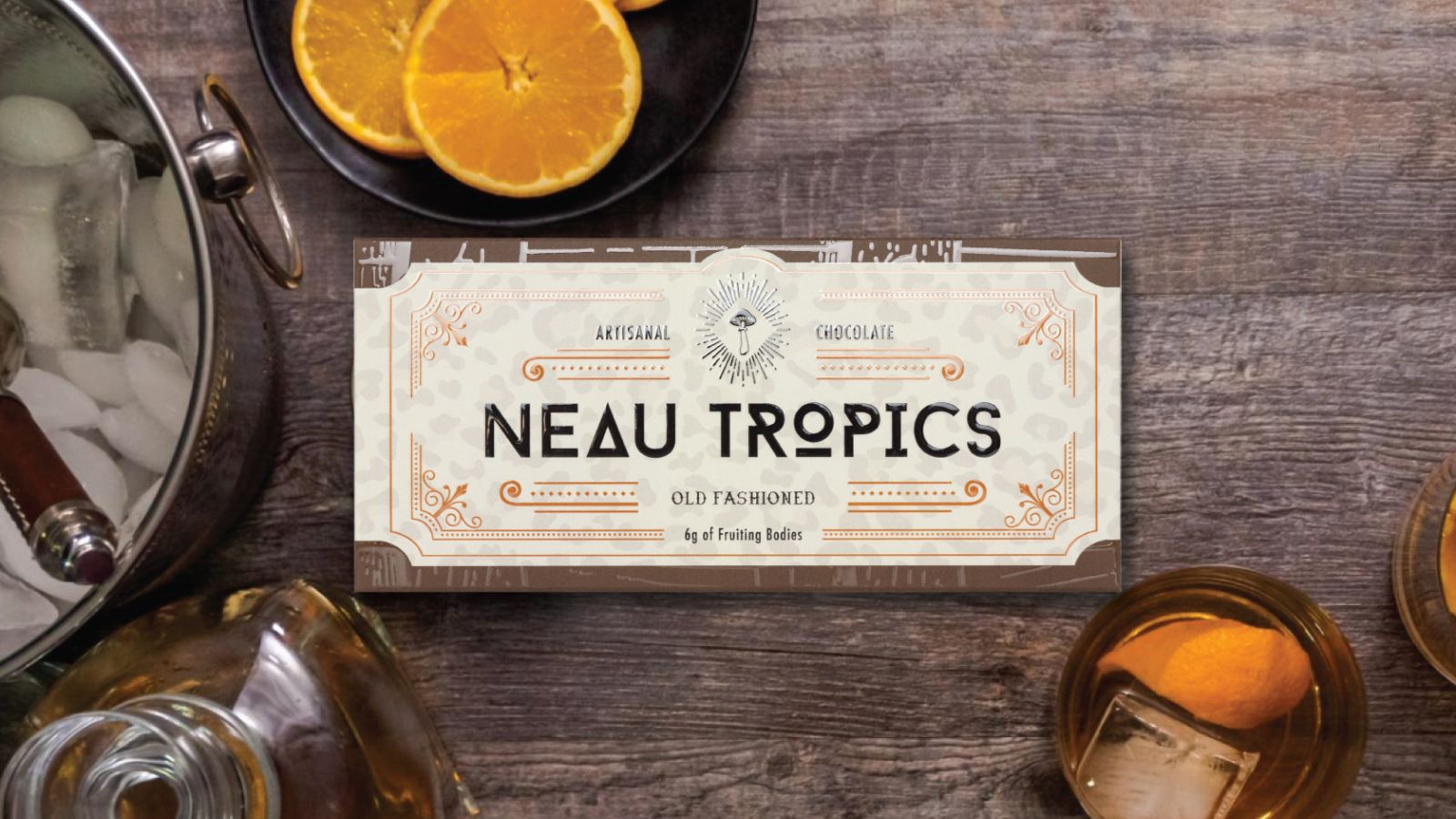In a world where mushrooms are fast becoming mainstream, it’s easy to forget the roots: reverence, craft, and connection. For Neau Tropics founder Eli, mushrooms are a lifeline, a philosophy, and a catalyst for healing.
Founded at the intersection of personal transformation and conscious craftsmanship, Neau Tropics is helping to redefine the landscape of modern psychedelics. Their artisanal mushroom edibles—thoughtfully sourced, meticulously crafted, and vibrationally aligned—offer a fresh blueprint for what celebration and connection can look like. With a focus on ethical sourcing, radical quality control, and intentional design, Neau Tropics invites a new generation to experience mushrooms not as an escape, but as a bridge back to the self.
At a time when much of the psychedelic marketplace can feel gimmicky or profit-driven, Neau Tropics stands apart—bringing artistry, integrity, and deep reverence for the fungal kingdom into every product they create.
We sat down with Eli to explore the origin story behind Neau Tropics, the ethos that fuels their creations, and how mushrooms are quietly helping to shift the future of party culture toward something more awake, more intentional, and more alive.

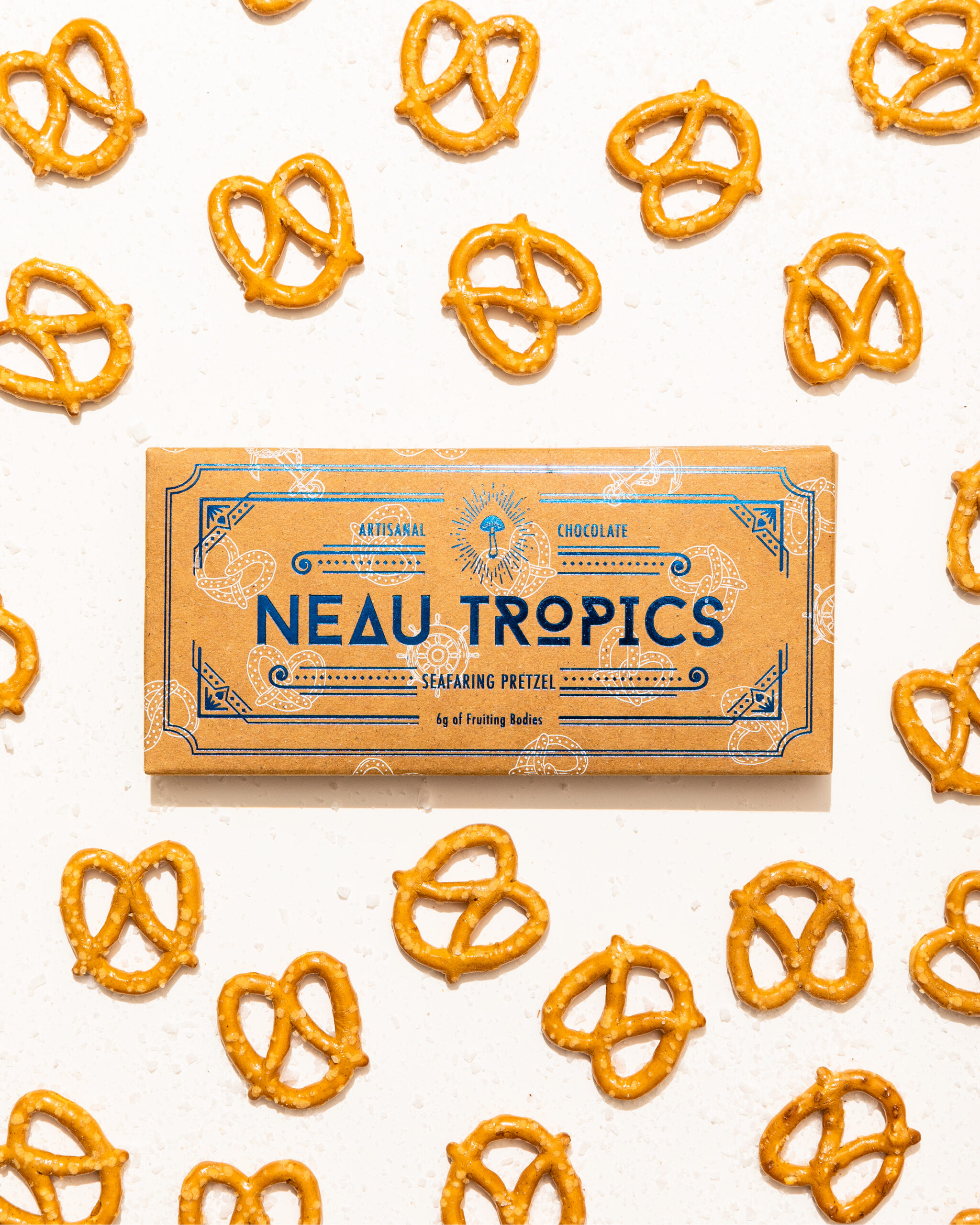
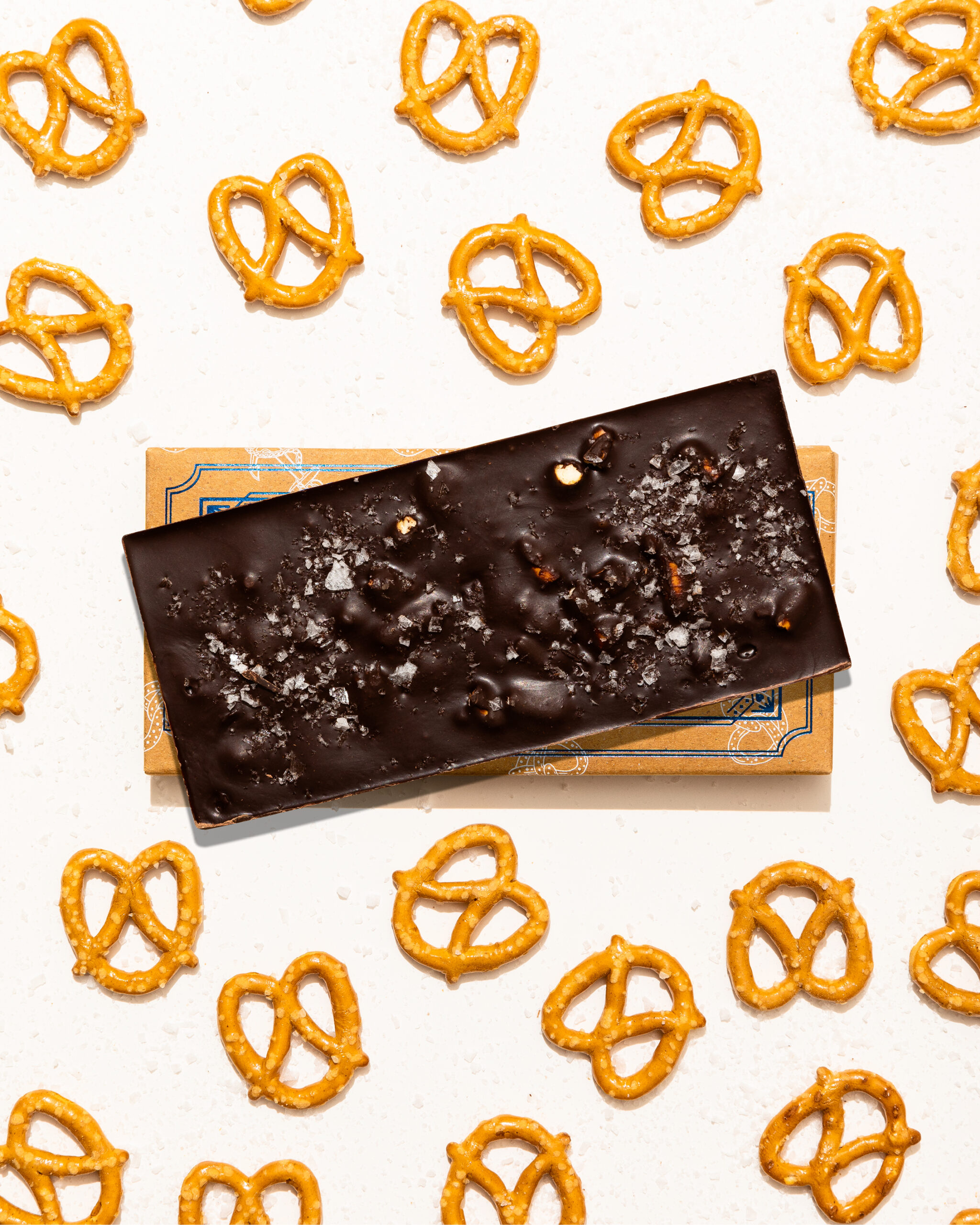
Origin Story & Vision
Reality Sandwich: What inspired the creation of Neau Tropics? Was there a moment or experience that sparked the idea?
Eli: I truly believe the creation of Neau Tropics began at the moment I was born, if not long before that. Everything in my life leading up to the inception of this company felt like it was preparing me towards the mission of spreading the mycelial network to those who needed it. There were, however, some notable moments that really shaped the path in more obvious ways.
I sustained a very severe traumatic brain injury in my late teens in a car accident that stripped away much of what I identified myself with. I had woken up with amnesia, and the following years were a very difficult and dark period in my life. Having sustained a big blow to my frontal lobe, I had developed a really bad speech impediment, where it became extremely difficult to speak. I also developed a host of other issues, including chronic neck/ back pain, headaches, anxiety, depression, light sensitivity, addictions, difficulty focusing, and difficulty regulating my emotions. Having been someone who always excelled in academics and in athletics, much of my self-worth was crushed to nothing. I had to drop out of college and start a life of hospital visits, prescription medication, and isolation from everyone and everything I knew.
In an act of desperation, I ended up joining a meditation program, which ended up being a cult. Through complete commitment to this meditation practice, I was able to see how much I was holding onto this story of the me who was damaged in an accident and was no longer useful to the world. I was gripping so tight to the victim identity I had created that I was not allowing myself to accept the new version and path that was in store for me.
But this is where things got really interesting: I actually had my first psychedelic experience meditating. I had been practicing for several years at this point, and it was just another normal session of meditation. For some reason, when I walked outside after this particular session, I truly felt like I had broken out of “myself” and was just pure present awareness. I remember walking around looking at the trees and flowers and really seeing the world around me for the first time as it actually was, without all the filters from my ego overlaying the experience. That feeling only really lasted about half an hour or so but it really left an impression on me.
Fast forward a few years, and it turned out this organization was a cult, and I left. I took much of the tools I had learned with me and without a college degree or any resume to speak of, I started a business in my early twenties. My journey of healing up to this point had put my family in a difficult emotional and financial situation, and I was intent on paying back my karmic debt. The following decade was a big chase towards self-validation and somehow trying to mend the trauma I had gone through. The result was that I had built a very successful business, but somehow ended up feeling spiritually bankrupt and was struggling with alcoholism.
One random Tuesday, one of my employees said he had a dream that he took mushrooms with me and that he felt called to take a heroic dose together. I had never taken any psychedelics prior to this, so I agreed to try it with no real prior knowledge or expectations. We procured ten dried grams from someone he knew and we went up to the mountains to take 5 grams each.
After the initial rollercoaster of the come up, I realized I had re-entered that pure present awareness I had experienced years prior while I was meditating. I couldn’t believe that you could take a shortcut to this state of consciousness. I felt so connected with my body and nature that I instantly gained a new level of respect for my body. Overnight, I quit an almost a pack a day smoking habit and started a trajectory towards appreciating nature and respecting my true self. My fascination with psilocybin mushrooms was off to the races.
During the start of the pandemic, I realized my passion for the business I was in had long faded and that I was facing extreme burnout. After a six-month sabbatical, I decided to sell my business and take the leap into following my passion, psychedelics and mental health. Little did I know that all my experiences from my accident, the stint in a cult, to starting a business from the ground up had given me all the tools to start Neau Tropics.
Reality Sandwich: What were you seeing in the mushroom space that you felt was missing—and how did Neau Tropics aim to fill that gap?
Eli: Around the time I was contemplating entering the space, packaged and branded mushroom edibles were just starting to become a thing. The wave of interest in mushrooms and microdosing was just starting to enter the zeitgeist and percolating on podcasts and other media platforms. The only branded products at the time, however, had very cartoonish and “trippy” aesthetics that conveyed a feeling of losing one’s mind. Think images of Mario with swirly eyes, Alice in Wonderland, Rick and Morty entering another dimension, etc.
I felt much of the branding out there was setting up the wrong expectations for people who were interested but on the fringes. Although in high doses, someone can enter portals (or rabbit holes) into other dimensions, I knew there were so many other applications of mushrooms that didn’t approach anything of the sort. There was also a much more educated audience that was looking for something more elevated that they could connect with.
I believe that the branding and copy can influence someone’s experience by having a bearing on their set and setting. We also wanted to have people from all different cultures feel included in the journey, and that influenced the direction we took with our myriad of niche flavors.
Reality Sandwich: Can you describe the core mission or philosophy behind the brand? What’s your “why”?
Eli: My philosophy behind the brand is simple. To make accessible this powerful tool to those who need it in order to lessen suffering in the world. My long climb out of my own suffering has created an empathy in me that drives me every day to help do my part in alleviating others’ suffering. That energy and intention resonate in every member of our team, and I believe it transfers to our products. Mushrooms are not the answer to life’s sufferings, but can be a tool or just a spark that someone needs to start the process of healing. Even if it’s just a replacement to a more harmful form of recreation.
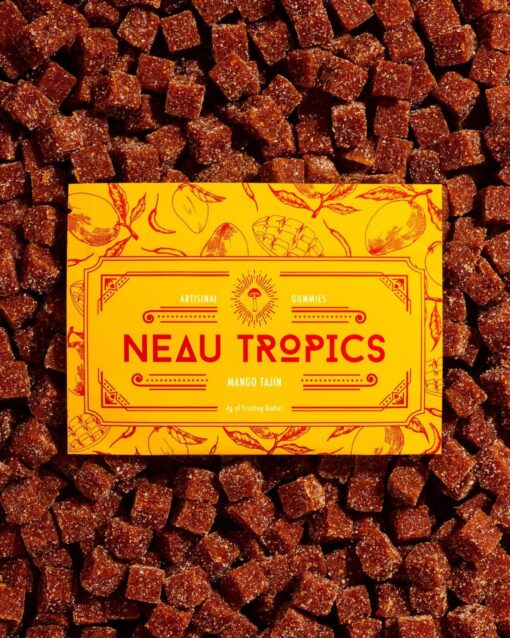
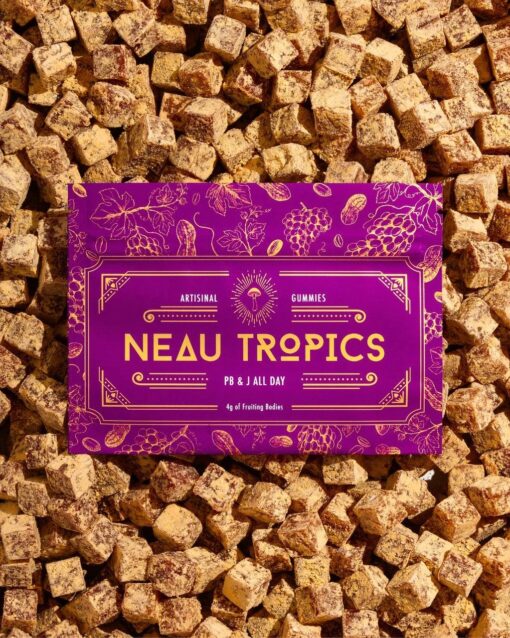
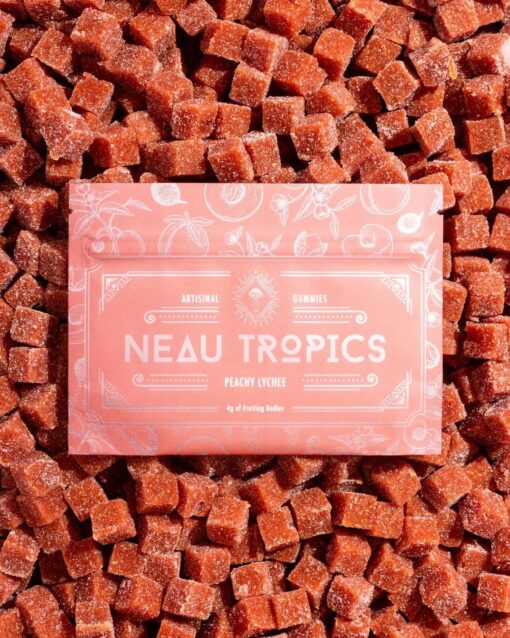
The Craft and Creation of Neau Tropics
Reality Sandwich: Let’s talk about the edibles. What goes into your formulations—how do you choose ingredients, dosages, and flavor profiles?
Eli: We take pride in sourcing the best ingredients possible. We start with sourcing organically grown and thoroughly dried, cleaned, and stored mushrooms. For the sake of cutting costs, many growers do not dry the mushrooms thoroughly, which can potentially cause mold. They also do not take the time to clean the fruiting bodies of all the substrate that can often have chemicals such as vermiculite or even manure.
We also make sure to store the fruiting bodies in a low-humidity environment, which preserves potency and also prevents rehydration.
When it comes to our edibles, we also keep our standards very high. The base chocolate we use is Belgian, organic, and fair trade. We also try to use whole ingredients as much as we can to flavor our chocolates. For example, we use actual pulverized dehydrated strawberries in our Strawberry Shortcake bar. All of our gummies are vegan, non-GMO, gluten-free, and have no artificial coloring.
The flavors that we choose are very intentional. We try to create flavors that appeal to everyone, even niche cultures that are often unrepresented in food products. We also do fun collaborations with artists and athletes to highlight their stories and flavor preferences.
Reality Sandwich: Are your products made in-house? Who’s on the team behind the scenes helping bring this vision to life?
Eli: We are a vertically integrated company and make everything in-house. I personally am in charge of the R&D for new flavors; however, we have an amazing team of experienced confectioners to create the product
Reality Sandwich: What do you believe sets Neau Tropics apart in terms of product quality and consistency?
Eli: We had our edibles independently tested, and we received some amazing results. Not only did it come back with zero synthetic analogs and industry-leading potency levels, but also with unprecedented levels of consistency. Whereas most mushroom edibles clock in at 15-20% potency variability between servings (within the same product), ours came in at an unheard-of 1.76%.
This means that the user will have a very uniform experience every time, which is crucial. We achieve these results because we take several additional steps in our process. Most other edibles brands use large spice grinders to save time, whereas we use much smaller and specialized processors that get the mushrooms into a fine dust. This allows for much more even distribution within the edible. Another benefit of this is that the chitin—the cell walls of the mushroom—are broken down, significantly reducing the nausea associated with onset.
We also use the most state-of-the-art equipment that much larger chocolate companies use to achieve consistent results even at scale.
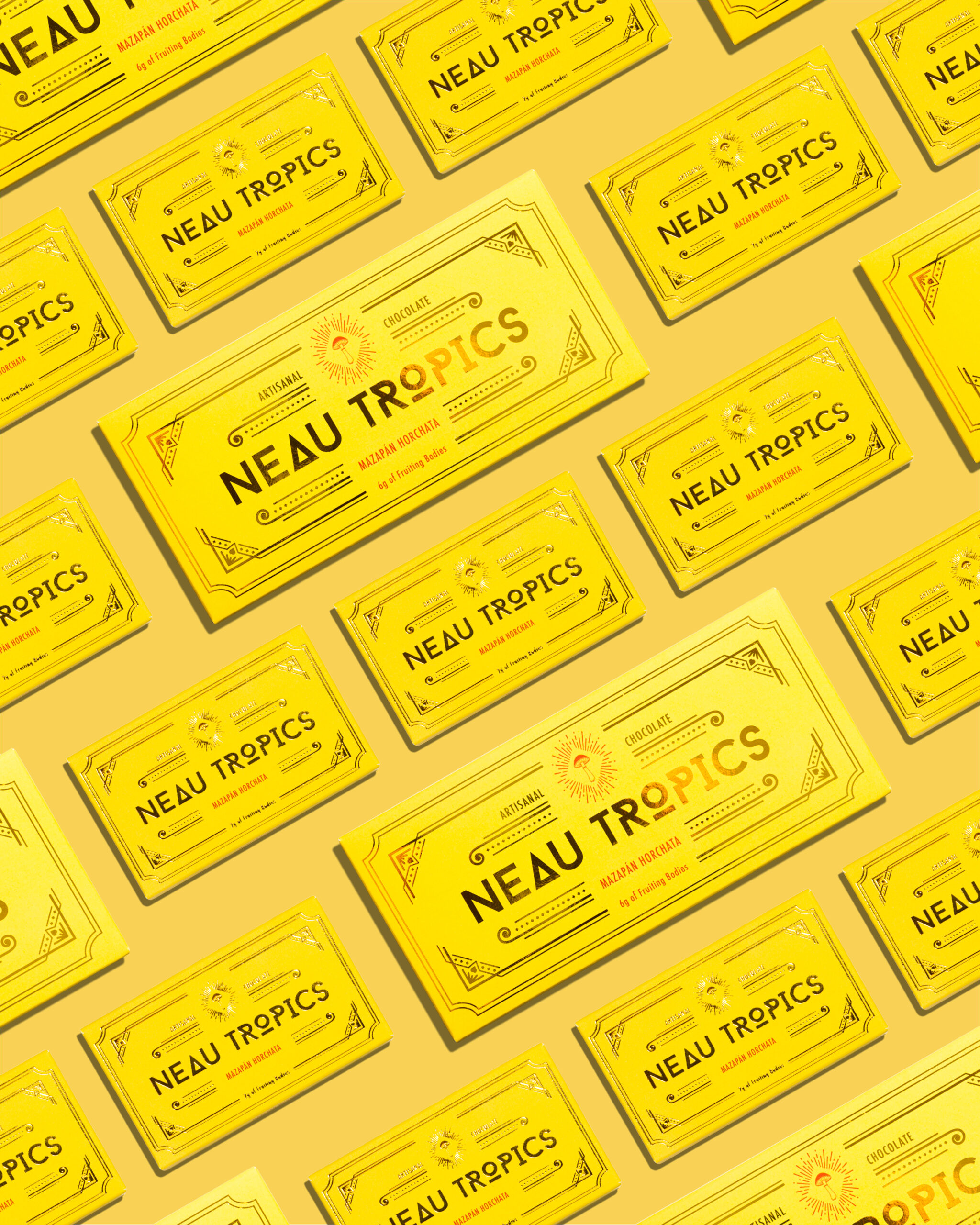
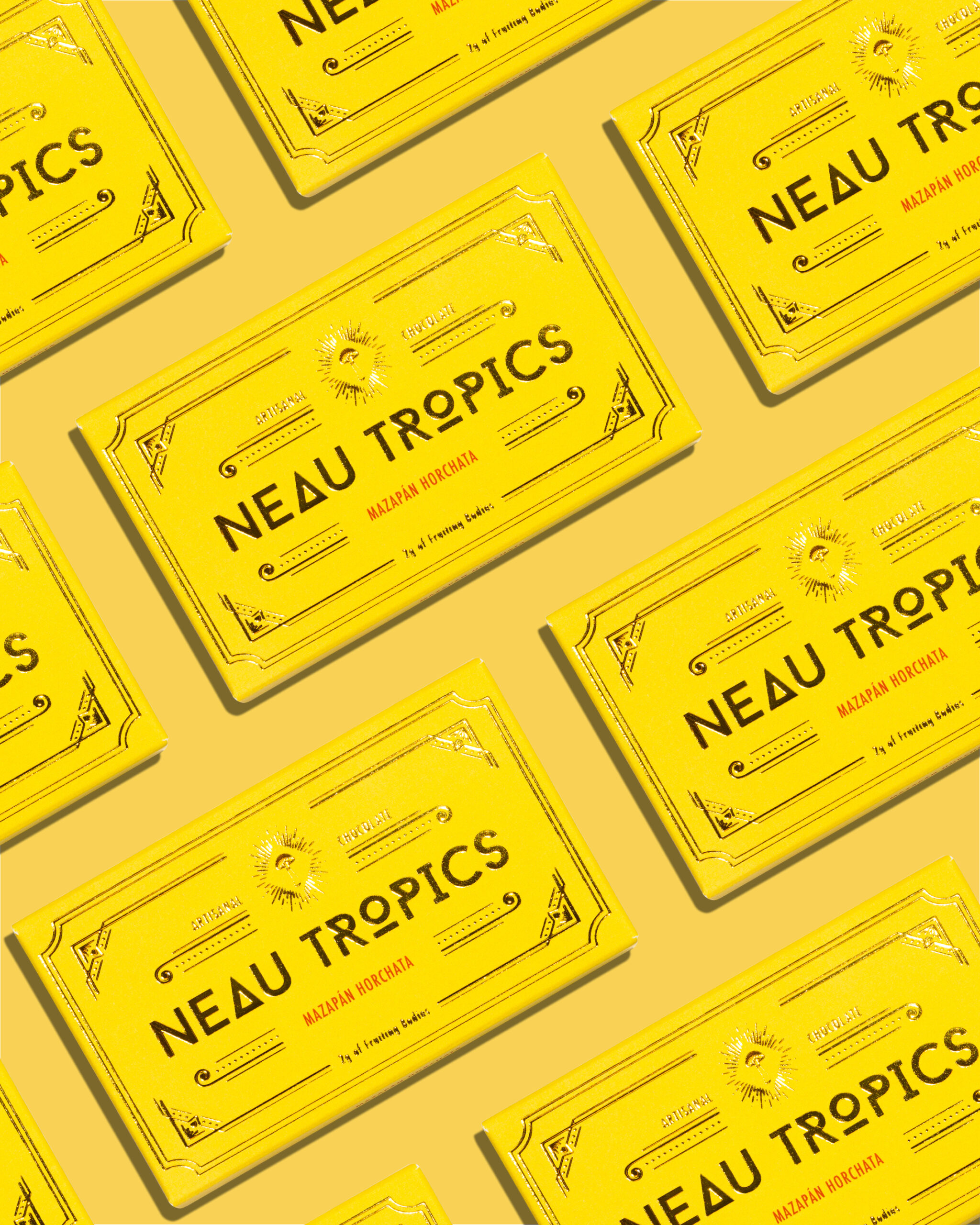
Mushroom Sourcing and Strain Selection
Reality Sandwich: Where do your mushrooms come from? What’s your sourcing process like, and how do you ensure integrity at each step?
Eli: Our mushrooms are sourced from a good friend and partner of ours who has dedicated himself to the craft of mycology. They only work with award-winning genetics that are famed for unique tryptamine profiles and potency. They also come from the legal cannabis industry and carry all the best practices from that heavily regulated market into their process. They also employ a double dehydration technique that, to my knowledge, no other growers use.
This system ensures maximum, cracker dry dehydration, which is actually vital when the mushrooms will be used in edibles. We get sent samples all the time from growers that want to secure our business, and they virtually all still have a level of moisture retention that is not ideal for use in edibles. Any moisture can not only compromise the quality of chocolate (chocolate requires zero moisture or it will seize up), but it can also increase the potential for mold to form. This was a major issue several years ago with many brands.
Reality Sandwich: How do you decide which mushroom strains to use? Is there a specific effect profile or vibe you aim for?
Eli: We are very intentional with the strains we include in our edibles. We know that every strain has its own entourage effect from its unique profile of tryptamine and alkaloids. Although we don’t disclose exactly what strains we use, we use a blend of Penis Envy variants. We aim to create a balanced experience that has a great body feel along with visuals, but with an emphasis on euphoria.
We found that our blend of strains really feels like a warm blanket that gives the user a safe space to explore themselves and their environment, and the feedback overwhelmingly reflects that. We are constantly getting testimonials about how people only had negative trips in the past and almost swore off mushrooms until they tried our products. Although we think we have found the blend that works, we have also rolled out our Single Strain Series to highlight more exotic strains for the aficionados, starting with our Enigma line.
Reality Sandwich: You mentioned you test your products for potency, but what kinds of information do you get out of the testing labs? What’s the process like?
Eli: We sent our edibles in for testing with a leading testing facility in Denver for three main metrics: existence of synthetic analogs like 4-ACO DMT, homogeneity, and potency. There was an epidemic in our industry where all the major brands were switching to 4-ACO DMT because it is way cheaper and easier to work with. Of course, rumors started to swirl that we were also using these analogs, so we decided to send in our products for testing to finally put those rumors to rest.
To our surprise, we received a call from the lab to congratulate us on a metric that we weren’t even looking for, homogeneity. We were expecting our products to clock in at industry-leading potency levels, however, we were informed that we had record levels of homogeneity within our products. They told us that most mushroom edibles test at 15-20% variance, but ours came in at 1.76% between servings. We attribute this to the extra steps we take in our process that are very painstaking and time-consuming, but show in the results.
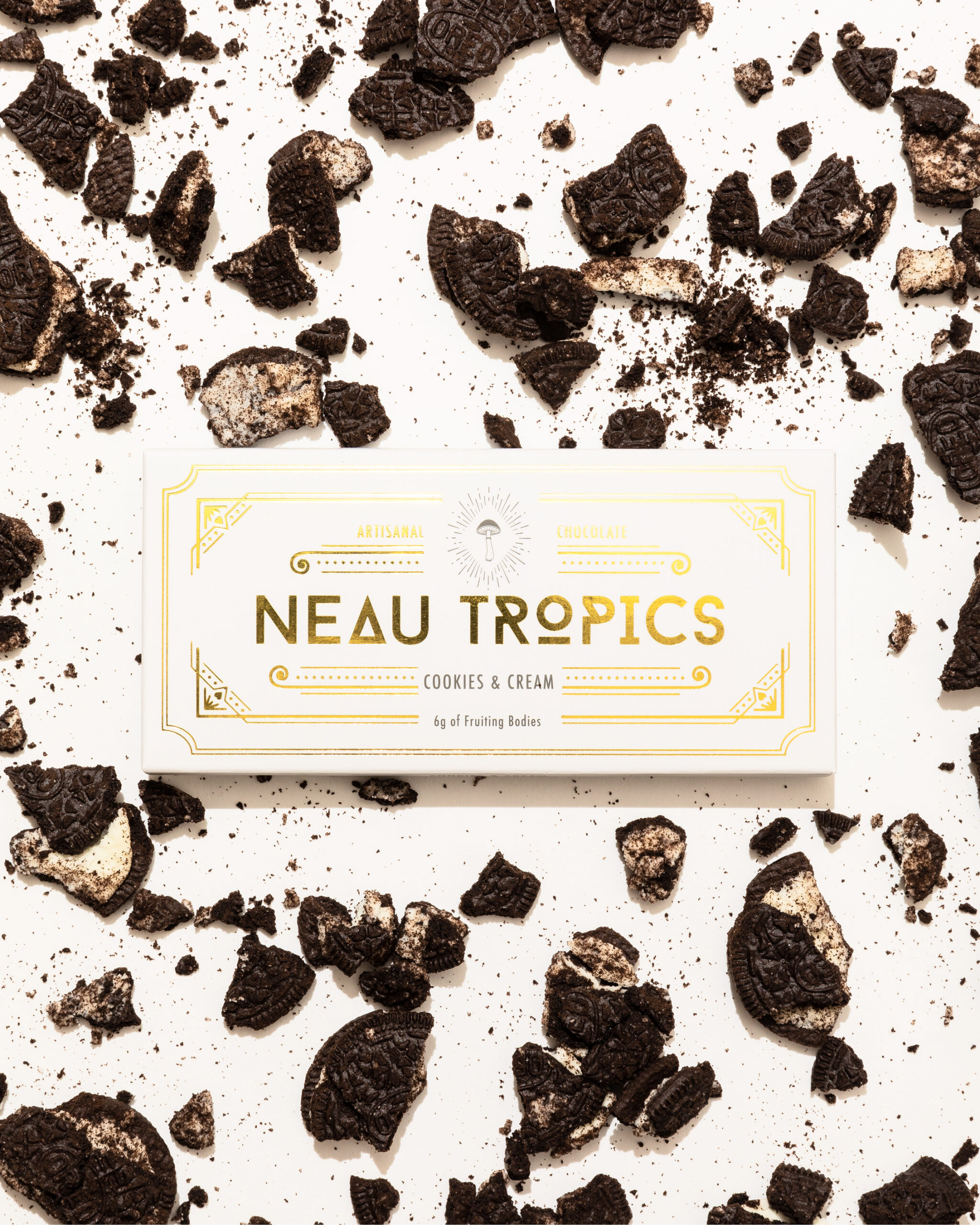
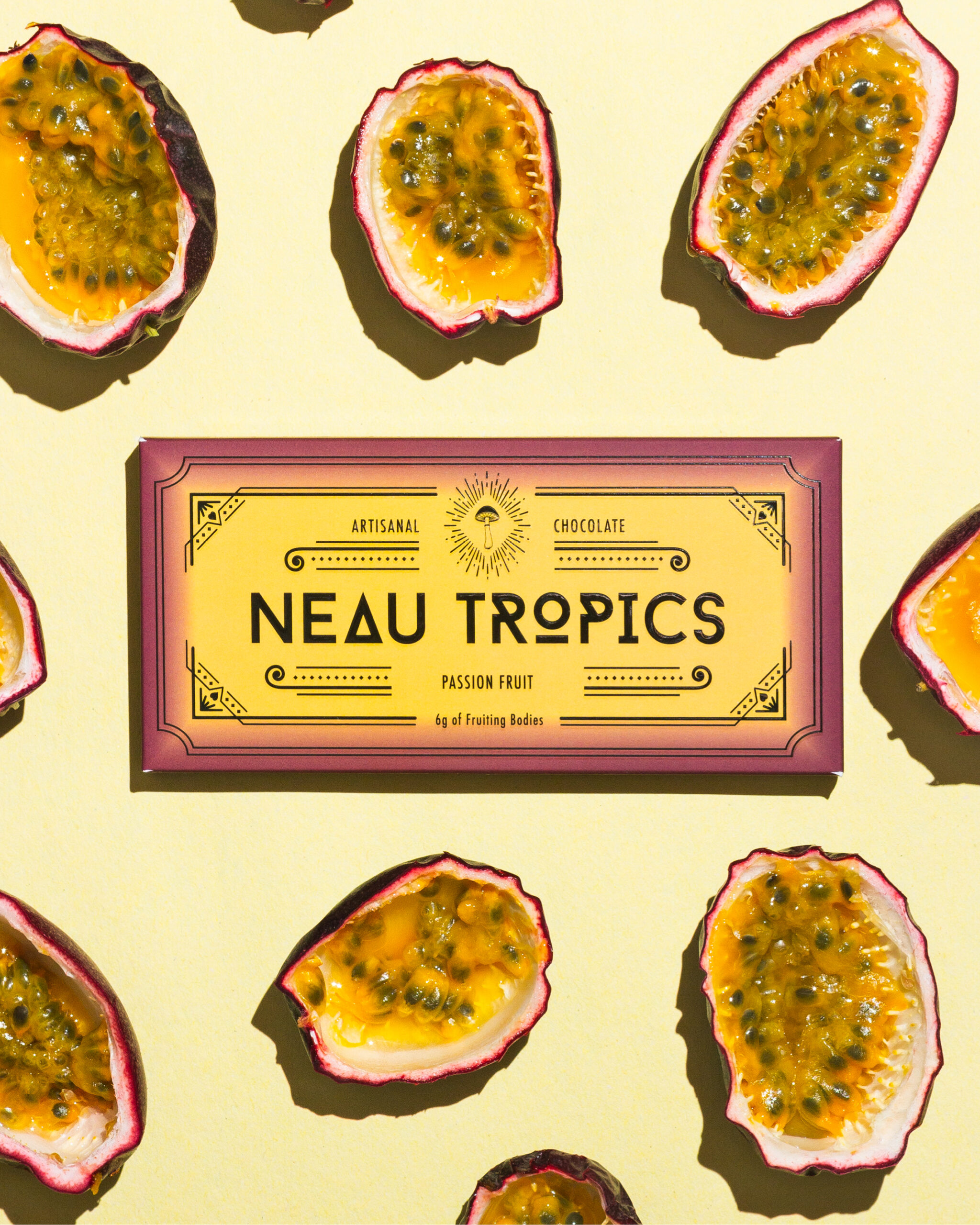
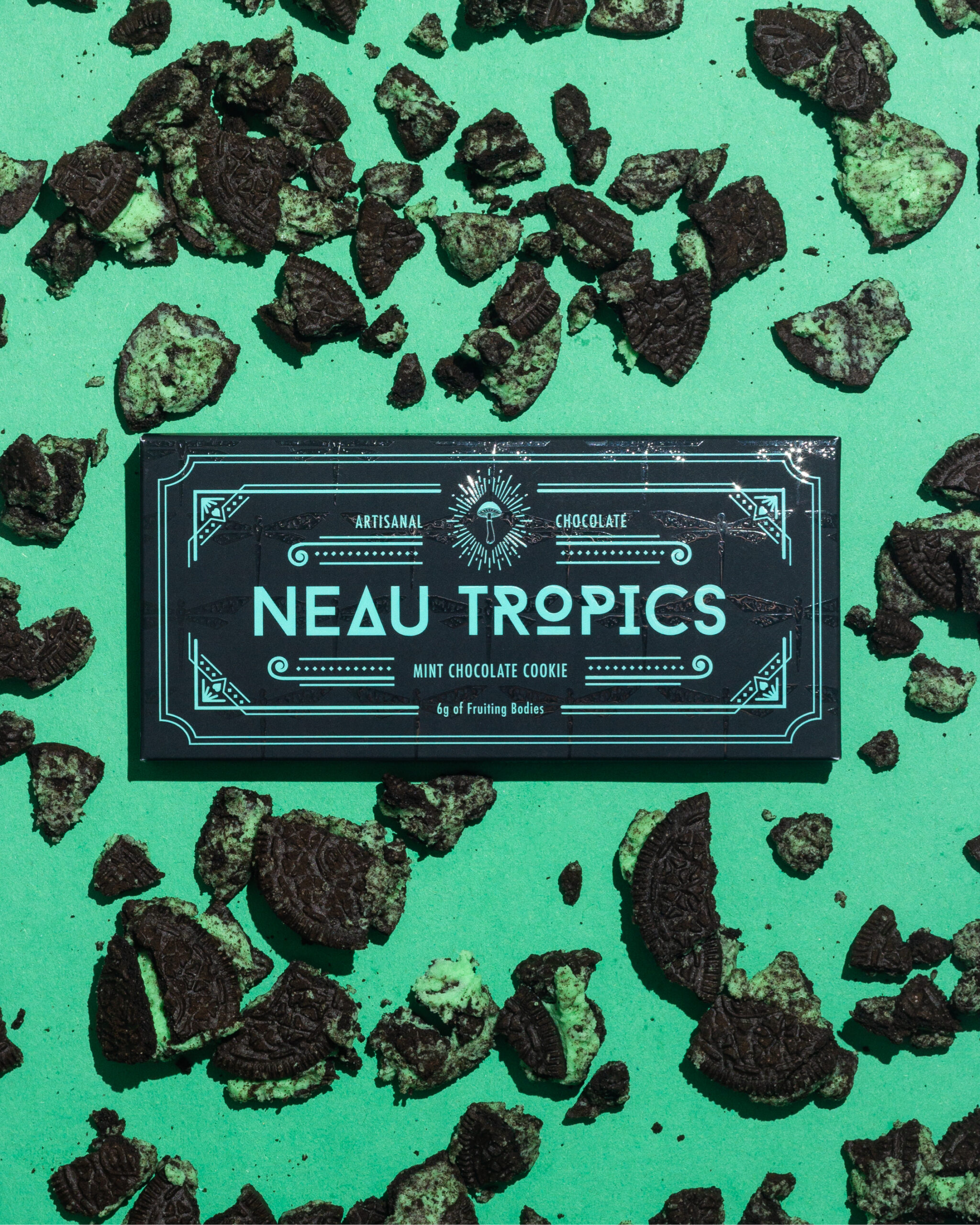
The Neau Tropics Experience
Reality Sandwich: What kind of experience are your products designed for—solo exploration, social connection, creative work, dancefloors?
Eli: There was actually a lot of intention put into how our products were designed. The beauty of mushrooms to me is in how many different applications they can have. They can be used to have deeply transformative experiences that help one understand their connection to the universe at large, help process varying degrees of PTSD, help overcome addictions, decrease anxiety, increase mood, provide an alternative to alcohol, to just providing an enhanced experience in nature or at a concert. All of these benefits can be had (with the correct dosing of course) without the toxicity to the body that other substances have or the hangover.
Reality Sandwich: So ultimately, you designed Neau Tropics to meet people where they’re at, and enhance or improve their lives.
Eli: My mission from the beginning was to provide products that were accessible and could be modulated to be used for whichever application was needed for that individual. As a brand, we choose to remain agnostic about how our products are used and simply want to provide quality, consistency, and education.
The dosing was intentionally designed in a way that one can use our products to microdose or have full-blown ceremonies. We love hearing all the testimonials of the different use cases and how seamlessly people can incorporate our products based on their needs. One thing I quickly learned being in this industry was how gate-keepy people were about how mushrooms can and should be used. It’s not lost on us the ‘ceremonial’ history of mushrooms and that they were held as sacred medicine for thousands of years.
With respect to that history, we believe we live in a time where our mental and spiritual health is under assault in unprecedented ways due to smartphones and social media. We truly believe psychedelics such as mushrooms are a crucial counterbalance to the rapid rate of technological change we are experiencing, and they should be not just accessible but approachable.
Reality Sandwich: How do you see the broader mushroom movement evolving—and what role do you hope Neau Tropics plays in that story?
Eli: I see mushrooms becoming much more mainstream in the coming years as they continue to be destigmatized. In our short history as a company, we have seen significant progress in this area and witnessed a shift in perception. We hope that we’ve played a small part in making mushrooms more socially accepted by setting certain standards in our largely unregulated industry. There needs to be public trust for this movement to grow, and we believe that it starts with dependable products and brands.
